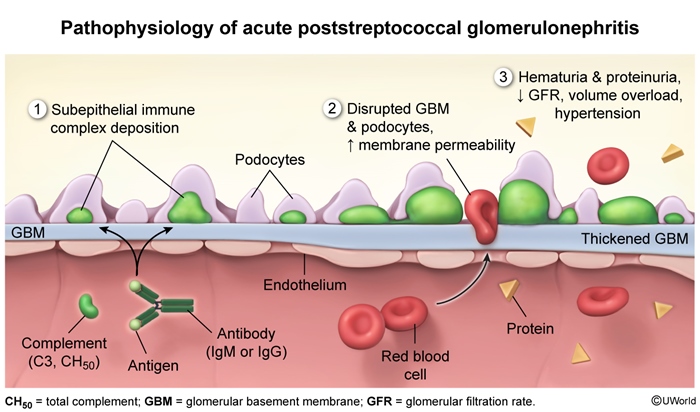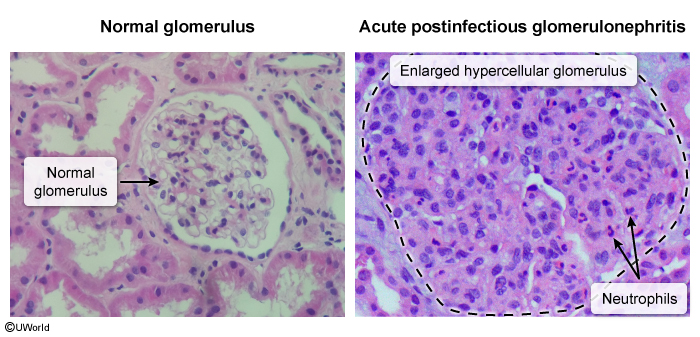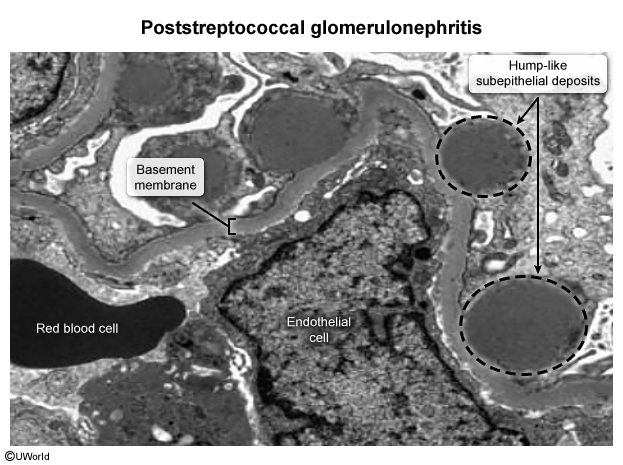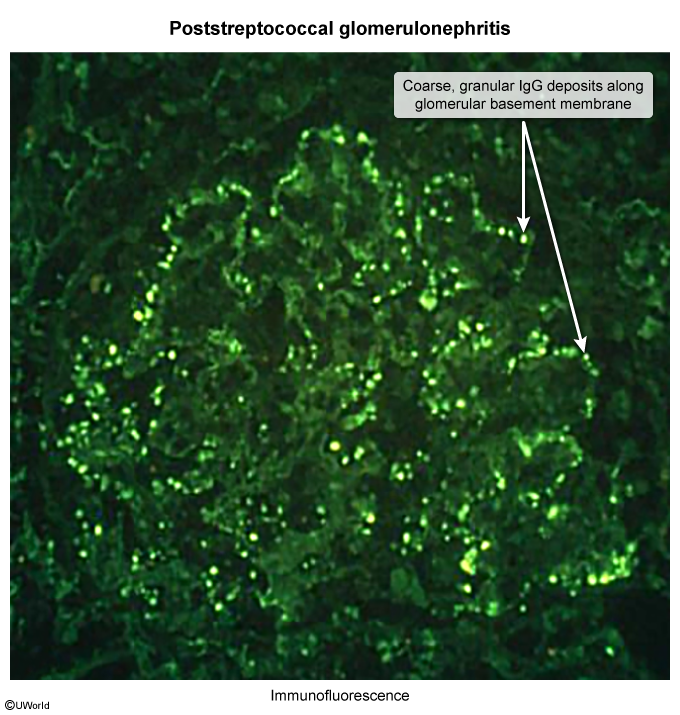Poststreptococcal Glomerulonephritis
Article Sections
Introduction
Poststreptococcal glomerulonephritis (PSGN) is a nonsuppurative complication of infection with nephritogenic strains of group A Streptococcus (GAS) (eg, Streptococcus pyogenes). PSGN is the most common cause of nephritic syndrome in children.
Pathophysiology and risk factors
PSGN is an immune-complex mediated condition that occurs 7-10 days after GAS pharyngeal infection or 2-4 weeks after GAS skin infection (eg, impetigo, cellulitis). During the initial infection, B cells produce IgG antibodies in response to nephritogenic antigens expressed by certain strains of GAS. These antibodies form nephritogenic GAS antigen-antibody complexes that cause glomerular injury, as follows (Figure 1):
- Complement activation: Immune complex deposition along the glomerular basement membrane (GBM) activates the alternate complement pathway (ie, type III hypersensitivity reaction). Complement component C3 accumulates within the immune complex deposits, leading to decreased serum C3 levels.
Continue Learning with UWorld
Get the full Poststreptococcal Glomerulonephritis article plus rich visuals, real-world cases, and in-depth insights from medical experts, all available through the UWorld Medical Library.
Unlock Full AccessFigures

Images


